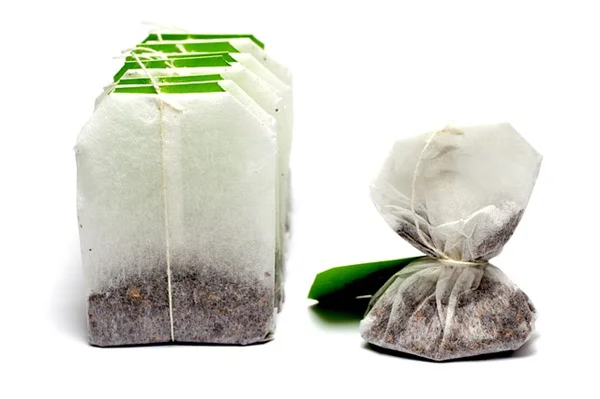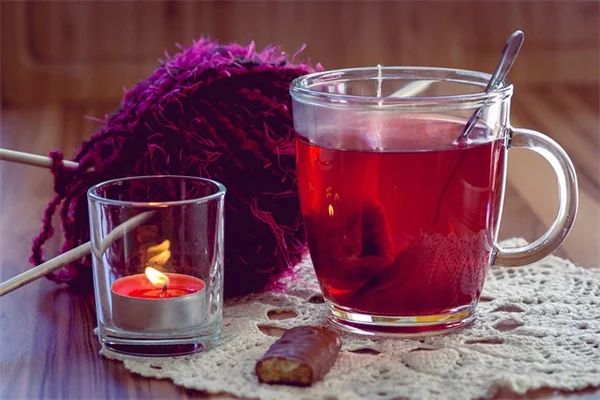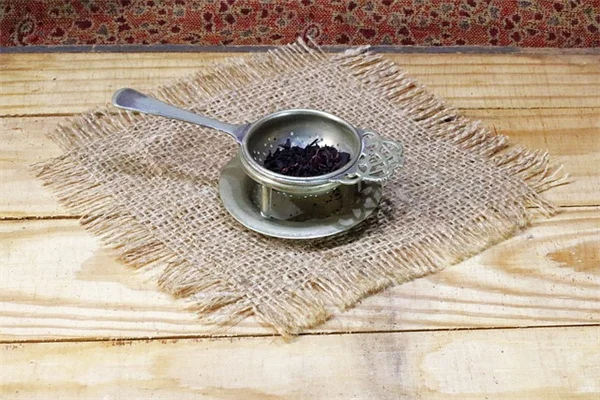Sleep and Glaucoma Risk: How Poor Sleep Affects Your Vision
Advertisement
Can poor sleep really increase your risk of glaucoma? The answer is yes - research shows that sleep problems can significantly raise your glaucoma risk by up to 20%! A massive study tracking over 400,000 people found that insomnia, sleeping too little or too much, and daytime sleepiness all contribute to higher glaucoma risk. Here's why this matters: glaucoma is the world's second leading cause of blindness, and it often develops without obvious symptoms until vision loss occurs. The good news? Understanding this sleep-vision connection gives you power to protect your eyesight through better sleep habits starting tonight.
E.g. :Global Obesity Crisis: 50% Will Be Overweight by 2035 (Shocking Report)
- 1、Why Your Sleep Habits Might Be Hurting Your Eyes
- 2、Glaucoma 101: What You Need to Know
- 3、Decoding the Sleep-Glaucoma Connection
- 4、The Sleep Saboteurs You Need to Watch For
- 5、When Too Much Sleep Becomes a Problem
- 6、Simple Changes for Better Sleep Tonight
- 7、When to Seek Professional Help
- 8、The Hidden Costs of Poor Sleep Beyond Glaucoma
- 9、Sleep Tech: Help or Hype?
- 10、Cultural Differences in Sleep Habits
- 11、Sleep Myths Debunked
- 12、The Future of Sleep Science
- 13、Your Action Plan Starts Tonight
- 14、FAQs
Why Your Sleep Habits Might Be Hurting Your Eyes
You know that groggy feeling when you don't get enough sleep? Turns out it might be doing more than just making you reach for extra coffee. A massive study tracking over 400,000 people found some eye-opening connections between poor sleep and glaucoma risk.
The Shocking Numbers Behind Sleep and Vision Loss
Let me break down what researchers discovered during their 10.5-year study:
| Sleep Issue | Increased Glaucoma Risk |
|---|---|
| Sleeping less than 7 hours | 8% higher |
| Sleeping more than 9 hours | 8% higher |
| Insomnia | 12% higher |
| Snoring | 4% higher |
| Daytime sleepiness | 20% higher |
Now here's something that might surprise you - being a night owl or early bird didn't affect glaucoma risk at all. It's all about how much and how well you sleep, not when you choose to hit the hay.
Glaucoma 101: What You Need to Know
The Silent Thief of Sight
Imagine your vision slowly disappearing like someone's turning down a dimmer switch - that's glaucoma. Dr. Brian Boxer Wachler explains it as "eye pressure-related damage to the optic nerve that creeps up on you". It starts by nibbling away at your peripheral vision before coming for your central sight.
Did you know there are actually several types? The most common is open-angle glaucoma (the high pressure kind), but there's also low-tension glaucoma and rarer forms like angle-closure and congenital glaucoma.
 Photos provided by pixabay
Photos provided by pixabay
Who's Most at Risk?
While poor sleep adds to your risk, other factors include:- Being over 55- Being male- Smoking- Having high blood pressure or diabetes- Family history of glaucoma- Certain ethnic backgrounds (African American, Asian, Hispanic)
Here's a sobering fact: 3 million Americans are currently living with glaucoma, making it the world's second leading cause of blindness.
Decoding the Sleep-Glaucoma Connection
What the UK Biobank Study Revealed
Researchers dug into data from that massive UK Biobank study where participants aged 40-69 shared their sleep habits. They tracked them for over a decade, watching for glaucoma diagnoses.
The findings were clear - people who developed glaucoma tended to be older males who smoked and had high blood pressure or diabetes. But here's the kicker - their sleep patterns told an important part of the story too.
Why Does Daytime Sleepiness Matter So Much?
You might think snoring is the worst sleep offender, but actually, daytime sleepiness showed the strongest link to glaucoma risk at 20%. That's five times higher than snoring's impact!
What's going on here? Researchers suspect chronic sleep issues might increase eye pressure or reduce blood flow to the optic nerve over time. Think of it like your eyes getting as tired as you feel when you can't stop yawning.
The Sleep Saboteurs You Need to Watch For
 Photos provided by pixabay
Photos provided by pixabay
Who's Most at Risk?
That 4pm latte might be keeping you awake more than you realize. Dr. Kilkenny warns, "The caffeine in tea and coffee is like a tiny alarm clock in your bloodstream", especially when consumed within 6 hours of bedtime.
And here's a pro tip - chocolate contains caffeine too! That bedtime chocolate bar might be part of your sleep problem.
Blue Light Blues
Scrolling through your phone before bed? You're basically telling your brain it's daytime. The blue light from screens suppresses melatonin production, making it harder to fall asleep.
Try this instead: Switch to "night mode" on devices 2 hours before bed, or better yet, read an actual book. Your eyes and sleep quality will thank you.
When Too Much Sleep Becomes a Problem
The Oversleeping Paradox
Here's something that might blow your mind - sleeping too much can be just as bad as sleeping too little. Regularly clocking more than 9 hours is linked to:- Increased inflammation- Weakened immune system- Higher risk of chronic diseases- 20-30% higher mortality risk
It's like Goldilocks and the Three Bears - you want your sleep to be "just right". Not too little, not too much.
 Photos provided by pixabay
Photos provided by pixabay
Who's Most at Risk?
Think about this - when was the last time you replaced your pillow? Old pillows can harbor dust mites and allergens that disrupt sleep. And that saggy mattress? It might be causing back pain that wakes you up at night.
Investing in good sleep hygiene isn't just about comfort - it's about protecting your long-term health, including your precious eyesight.
Simple Changes for Better Sleep Tonight
Create a Wind-Down Routine
Your brain needs time to shift gears from "go mode" to "sleep mode". Try these relaxing activities 30-60 minutes before bed:- Take a warm bath (not hot)- Do gentle stretching- Listen to calming music- Practice deep breathing
Remember - checking work emails doesn't count as winding down!
Make Your Bedroom a Sleep Sanctuary
Transform your bedroom into a cave (the comfortable kind):- Keep it cool (around 65°F is ideal)- Make it dark (blackout curtains work wonders)- Keep it quiet (white noise machines can help)- Reserve the bed for sleep and intimacy only
Your body will start associating the bedroom with rest, making it easier to fall asleep and stay asleep.
When to Seek Professional Help
Signs You Might Need a Sleep Study
If you regularly experience these symptoms, talk to your doctor:- Loud snoring with gasping/choking sounds- Morning headaches- Extreme daytime fatigue- Difficulty concentrating- Waking up frequently to urinate
These could indicate sleep apnea or other treatable conditions that might be affecting both your sleep quality and eye health.
The Eye-Sleep Connection Matters More Than You Think
We often treat sleep and eye health as separate issues, but they're deeply connected. Getting quality sleep isn't just about feeling rested - it's about protecting your vision for years to come.
Start tonight by implementing just one positive change to your sleep routine. Your future self (and your future eyesight) will be grateful you did.
The Hidden Costs of Poor Sleep Beyond Glaucoma
Your Brain on Sleep Deprivation
Ever walked into a room and forgot why you went there? That's your sleep-deprived brain in action. Lack of quality sleep doesn't just affect your eyes - it messes with your memory, decision-making, and even your emotional regulation. Think of your brain like a smartphone running too many apps with low battery - everything slows down and glitches start appearing.
Here's a fun fact: After 17-19 hours without sleep, your cognitive performance drops to the equivalent of having a 0.05% blood alcohol concentration. That's why pulling an all-nighter makes you feel like you're walking through molasses the next day!
The Weight Gain Connection
Did you know your sleep habits might be making your jeans tighter? When you're sleep-deprived, your body produces more ghrelin (the "I'm hungry" hormone) and less leptin (the "I'm full" hormone). This explains why you crave donuts and pizza after a bad night's sleep.
One study showed people who slept just 5 hours per night for a week gained an average of 2 pounds! Your body thinks it's in crisis mode and starts clinging to calories like they're going out of style.
Sleep Tech: Help or Hype?
Wearables That Actually Work
You've probably seen those fancy sleep tracking rings and watches. But do they really help or just give you more data to stress about? The truth is, some can be incredibly useful if you know how to interpret the information.
For example, the Oura Ring tracks your body temperature changes throughout the night - a great indicator of sleep quality. And Fitbit's sleep staging can show you how much deep sleep you're getting. Just remember: these are tools, not solutions. They're like bathroom scales - the number only matters if you do something with it!
The Dark Side of Sleep Apps
Here's something ironic - some sleep apps might actually be keeping you awake! That soothing ocean sounds app? Great in theory, but if you're constantly checking your phone to see if it's still playing, you're defeating the purpose.
And those meditation apps with sleep stories? Wonderful concept, unless you get so into the story you stay awake to hear the ending (guilty as charged!). Sometimes the old-fashioned methods work best - a boring book and warm milk never hurt anybody.
Cultural Differences in Sleep Habits
The Siesta Secret
Ever wonder why Mediterranean cultures take afternoon naps? Science shows they might be onto something. Short 20-30 minute power naps can actually boost alertness and performance without leaving you groggy.
But here's the catch - napping too long or too late can backfire. That 3-hour nap at 5pm? That's not a siesta, that's a sleep hijacking! The sweet spot is early afternoon for no more than 30 minutes.
Sleeping Like a Baby (Or Not)
In many Western cultures, we expect babies to sleep through the night by 6 months. But in other parts of the world, frequent nighttime waking is considered normal until age 2-3. Makes you wonder - are we fighting nature with all those sleep training methods?
Maybe the answer lies somewhere in between. After all, every child (and every parent) is different. The important thing is finding what works for your family without driving everyone crazy!
Sleep Myths Debunked
"I Can Catch Up on Sleep Later"
Oh honey, no. Your body doesn't have a sleep bank where you can make deposits and withdrawals. While an occasional weekend sleep-in feels amazing, it doesn't erase the damage from chronic sleep deprivation.
Think of it like sun exposure - one day at the beach without sunscreen does damage that moisturizer can't completely undo. Your brain needs consistent, quality sleep to function at its best.
"Alcohol Helps You Sleep Better"
This one's a doozy. While alcohol might help you fall asleep faster, it absolutely destroys your sleep quality. It suppresses REM sleep (the important dream stage) and can cause frequent awakenings.
Ever notice you wake up at 3am after drinking? That's your body metabolizing the alcohol and basically going through mini-withdrawal. Not exactly the restful night you were hoping for!
The Future of Sleep Science
Personalized Sleep Plans
Imagine walking into a sleep clinic and getting a custom sleep plan based on your DNA, lifestyle, and even your gut microbiome. That future might be closer than you think!
Researchers are discovering that our sleep needs are as unique as our fingerprints. Some people truly thrive on 6 hours while others need a solid 9. The key is finding your personal sweet spot and sticking to it.
Sleep Optimization for Peak Performance
Elite athletes have known this secret for years - sleep is the ultimate performance enhancer. Now this knowledge is trickling down to everyday people.
From temperature-controlled mattresses to smart lighting that mimics sunrise, the sleep tech industry is booming. Who knows - maybe someday we'll all have personal sleep coaches like we have personal trainers!
Your Action Plan Starts Tonight
Small Changes, Big Results
You don't need to overhaul your entire life to sleep better. Start with one simple change tonight - maybe it's turning off screens 30 minutes earlier or trying a new pillow.
Remember, Rome wasn't built in a day, and neither are good sleep habits. Be patient with yourself and celebrate small victories. That extra 15 minutes of sleep you gained this week? That's progress!
Track Your Wins
Keep a simple sleep journal for a week. Note what time you went to bed, how you felt the next day, and any factors that might have affected your sleep (like that late-night coffee or stressful work call).
Patterns will emerge, and you'll start seeing what really works for you. Knowledge is power, especially when it comes to your precious sleep!
E.g. :Sweet Dreams: The Relationship Between Sleep And Glaucoma ...
FAQs
Q: How much does poor sleep actually increase glaucoma risk?
A: The numbers might surprise you! According to the UK Biobank study tracking 400,000+ people, different sleep issues carry different risks:
Daytime sleepiness showed the strongest link at 20% increased risk - that's five times higher than snoring's 4% impact. Insomnia bumped risk by 12%, while sleeping less than 7 or more than 9 hours both increased risk by 8%. What's fascinating is that being a night owl or early bird didn't affect risk at all - it's all about sleep quality and duration. We recommend aiming for that sweet spot of 7-9 hours of quality sleep to help protect your vision.
Q: Why does daytime sleepiness have such a strong connection to glaucoma?
A: Great question! Researchers believe chronic sleep issues leading to daytime sleepiness might increase eye pressure or reduce blood flow to the optic nerve over time. Think of it like this: when you're constantly tired, your eyes are working overtime too. Dr. Brian Boxer Wachler explains that glaucoma involves "eye pressure-related damage to the optic nerve" - and poor sleep appears to make this damage more likely. We've seen that people who report frequent daytime sleepiness tend to have the highest glaucoma risk, even higher than those who snore or have insomnia alone.
Q: What are the most common sleep mistakes that could hurt my eye health?
A: Based on our experience analyzing sleep studies, these are the top offenders:
1) Late-day caffeine - that 4pm coffee can linger in your system for 6+ hours
2) Screen time before bed - blue light tricks your brain into thinking it's daytime
3) Irregular sleep schedule - your eyes (and whole body) thrive on consistency
4) Sleeping on old bedding - dust mites and allergens can disrupt sleep quality
5) Eating too close to bedtime - can cause discomfort that interrupts sleep. Fixing just one of these could make a difference for both your sleep and eye health.
Q: Is sleeping too much really as bad as sleeping too little for glaucoma risk?
A: Surprisingly, yes! The study found that both sleeping less than 7 hours and more than 9 hours carried the same 8% increased glaucoma risk. Dr. Kilkenny explains that oversleeping (called hypersomnia) is linked to increased inflammation, weakened immune function, and higher risk of chronic diseases - all factors that might contribute to eye health problems. We like to think of it like Goldilocks' porridge - you want your sleep duration to be "just right" in that 7-9 hour sweet spot for optimal eye health protection.
Q: What's the first step I should take tonight to protect my vision through better sleep?
A: Start simple - we recommend creating a consistent bedtime routine that signals to your brain it's time to wind down. Try these easy steps:
1) Set a "screen curfew" 1 hour before bed (or use blue light filters)
2) Keep your bedroom cool (around 65°F is ideal)
3) Try deep breathing or gentle stretching to relax
4) Go to bed and wake up at roughly the same time daily
Remember - protecting your vision starts with small, sustainable changes to your sleep habits. Your future self (and your eyes) will thank you!


